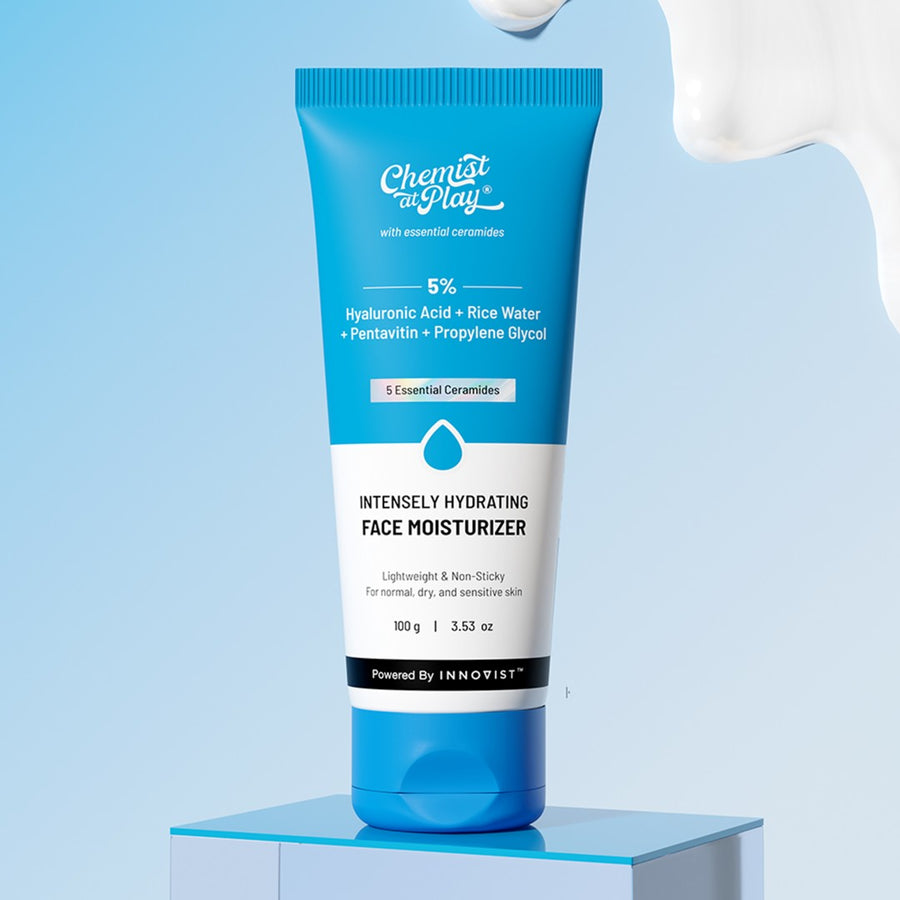
Benefits of Night Cream and Why One Should Apply Night Cream
Beauty is an imperative and it is the main concern for all the women. You might be very careful about the food and care about the skin. We all go through a certain procedure to maintain a youthful skin like cleaning, exfoliating, and moisturizing. While skin is the first organ that suffers from external damages like pollution; skin care is very important. And one of the most important processes in skin care is the application of night cream.
Night cream is most important for the skin as the blood flow to the skin stops at night. Due to this the skin heals and repairs itself at night and the process of regeneration is the most important process in order to have a nice skin, so it is very important to have a good night cream. Using the night cream is an excellent living and you can reduce the fine wrinkles and the dark spots. Night creams are packed with nutrients which are essential for healthy skin.
If you’re wondering what night cream can do for you, you’ve come to the right place! We’ve got the scoop on what night creams are, why they are so beneficial, and how they can make your skin look younger and more radiant over time.
Benefits of Night Cream
Boosts Collagen

There are many benefits to using night cream, one of which is that it can help to boost collagen production. Collagen is a vital protein that helps to keep the skin looking firm and youthful, so by boosting collagen production, night cream can help to keep the skin looking its best. In addition to boosting collagen production, night cream can also help to hydrate the skin and reduce the appearance of wrinkles.
Moisturization

By night, your skin is left to fend for itself after a long day of being bombarded by drying agents from pollution and sun exposure. But with the use of night cream, you can give your skin the hydration it needs to look fresh and radiant in the morning.
| Types of Moisturizers | ||
| Emollients | Humectants | |
| Mechanism of action | Saturated & unsaturated hydrocarbons with variable length which improves skin barrier function, membrane fluidity and cell signalling, resulting in overall improvement of skin texture and appearance. Often combined with emulsifier |
Low molecular substances in majority, with capability to attract water into stratum corneum. Frequently used with other compounds which may retain the water content |
| Indication | Routine skin care, dry and rough skin, papulosquamous skin disease |
Xerosis, ichthyosis |
| Adverse effect | Contact irritation (seldom) | Irritation (lactic acid, urea) |
| Substance | Fatty acids, fatty alcohols, cholesterol, squalene, pseudo ceramides | Urea, sorbitol, panthenol, glycerol, propylene glycol, hyaluronic acid, alpha hydroxy acids |
Night creams are typically thicker and more emollient than daytime moisturizers, making them ideal for sealing in hydration overnight. Night cream helps to smooth and soften your skin, and can also help reduce the appearance of dark circles under your eyes, which are often caused by dehydration.
Prevents Aging

It is a well-known fact that using night cream prevents aging. It helps to hydrate and repair the skin while you sleep, when the skin’s natural repair process is at its peak. No matter what your skin type, be sure to look for a night cream that contains antioxidants and other anti-aging ingredients such as retinol, hyaluronic acid, and peptides. These ingredients will help to reduce the appearance of fine lines, wrinkles, and other signs of aging.
Reduces Pigmentation

Pigmentation is caused by an overproduction of melanin, which can be triggered by sun exposure, hormones, and certain medications. Night cream can help to reduce pigmentation by inhibiting the production of melanin. Night creams often contain active ingredients such as vitamin C, retinol or niacinamide that can help to reduce the appearance of pigmentation and uneven skin tone. By using night cream regularly, you can help to create a more even and radiant complexion.
Improve Blood Circulation

Night creams are applied by massaging them into the skin in a circular motion. When you apply a night cream to your skin, the active ingredients are able to penetrate deep into the skin and work their magic. This can help to improve the overall appearance of your skin, but it can also help to increase blood flow and circulation. This is important because it can help to keep your skin looking young and healthy by delivering oxygen and nutrients to the skin cells.
Cells Renewal
While we are asleep, our bodies go into repair mode and cells are renewed at a faster rate than during the day. Night cream encourages the production of new cells, which replaces old, damaged cells; resulting in brighter and smoother skin. So, if you want to keep your skin looking its best, make sure to include a good quality night cream in your beauty regime.
Why Should We Apply Night Cream?

The night cream is an essential part of any skincare routine - but is often overlooked and underestimated. Some of us think it's nothing more than a marketing ploy and that it's no different from our regular day cream. While others of us are too lazy to bother using it. However, night creams can actually have amazing benefits for our skin. During the day, our skin is constantly exposed to harsh sun rays, pollution, and dirt, which can cause significant damage.
But at night, our skin goes into repair mode and starts to regenerate itself, reversing the damage from the day. It can help hydrate and nourish your skin overnight, reduce the appearance of fine lines and wrinkles and help you wake up to softer, more youthful-looking skin. It contains retinoids and other ingredients such as vitamin C, niacinamide and Hyaluronic acid which help to get rid of the dead skin cells. So if you want to give your skin a little extra love and care, be sure to add a night cream to your beauty routine! Your skin will thank you for it.
How Should You Apply Night Cream?
Night creams are typically thicker in consistency as they are designed to be richer and more nourishing than daytime formulas, so it's important to apply them after cleansing your skin to allow the ingredients to better sink in. And of course you don't want to trap dirt and oil in your pores. In fact, cell regeneration is at its highest between 10pm and 2am, making this the ideal time to apply a night cream. After cleansing, toning and applying a serum or essence, take a small amount of the cream in your palms and massage it onto your face in upward, circular motions. Be sure to pay special attention to areas that are prone to dryness or wrinkles. Finally, give the cream a few minutes to absorb into your skin before going to bed.
How to Pick a Night Cream
When choosing a night cream be sure to avoid anything that is too thick as it will clog your pores and will make it difficult for your skin to breathe. A good night cream should also be unscented and hypoallergenic in order to minimize the risk of any allergic reactions.
At Innovist we have developed our night cream enriched with 2% Encapsulated Anti-Aging Actives which is known to reduce the sign of aging, salicylic acid that prevents the acne breakouts and control excess sebum production and 2% Zemea which deeply moisturize and hydrates the skin. All these ingredients come together to not only improve the overall appearance of the skin but also repair the skin barrier.

Conclusion
If you are looking to improve your skincare routine, one of the best things you can do is to use a night cream. Night cream are rich, concentrated formulas that are designed to be applied to the skin right before going to bed. They are loaded with ingredients that work to repair your skin and make you look younger and radiant over time.
Ready to give your skin the feast of glow it deserves while you are asleep? Then try the Chemist at Play night cream designed for oily, and dry-normal skin type and wake up like a queen👸.






























